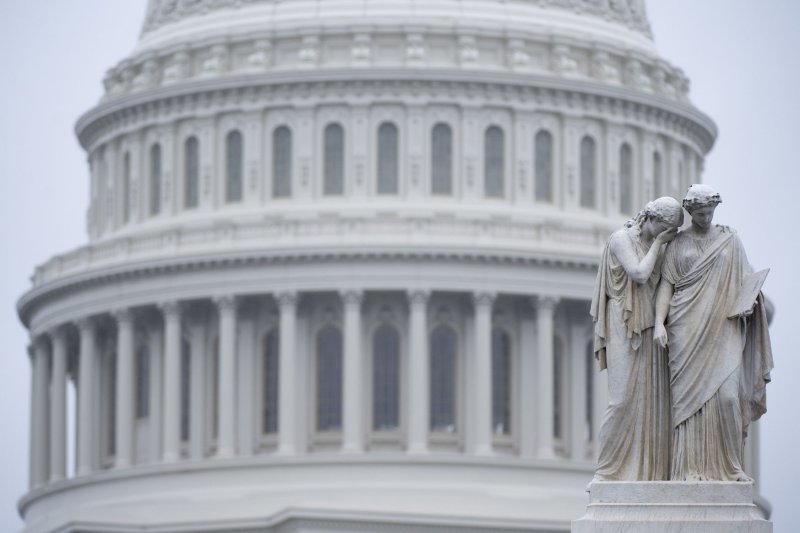The Innovations Act, a bill to crack down on frivolous lawsuits from patent trolls, has passed the House 325-91, marking a step to address the increased used of patent litigation. (File/UPI/Kevin Dietsch) |
License Photo
Dec. 6 (UPI) -- A bill to crack down on frivolous lawsuits from patent trolls passed the House 325-91, marking a step to address the increased used of patent litigation.
The Innovations Act, authored by Rep. Bob Goodlatte (R-Virg.), has passed through the House judiciary committee in November and was put to vote Thursday. The bill received bipartisan support and will go to the Senate where a similar bill from Sen. Patrick Leahy (D-Vt.) is in committee. The passage of this bill could give the Senate bill the necessary momentum to be tabled.
“In recent years, we have seen an exponential increase in the use of weak or poorly-granted patents by so-called patent trolls to file numerous patent infringement lawsuits against American businesses with the hopes of securing a quick payday," said Goodlatte.
The bill does not change the patent structure but tries to reduce the incentives to file a frivolous complaint, saving companies money and resources spent fighting such cases.
There will be a higher onus on complainants to disclose who the owner of the patent is, what part of the patent is being infringed and why they are suing the other company.
In the case of frivolous lawsuits, the bill allows judges to make the plaintiff pay for the legal fees borne by the company being sued. The aim is to make it difficult for trolls to send vague bulk letters to companies, and would face higher costs if they chose to go to court rather than settle.
But there is opposition to the bill. The National Small Business Association is opposed to the bill because they say that certain provisions would put undue burden on individual inventors, technology startups and innovative small companies. The have taken issue with provisions on preliminary discovery and on requiring companies to provide more detailed information on patent ownership.
[The Verge]
[The National Small Business Association]
[House Judiciary Committee]







